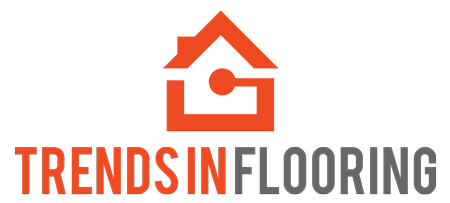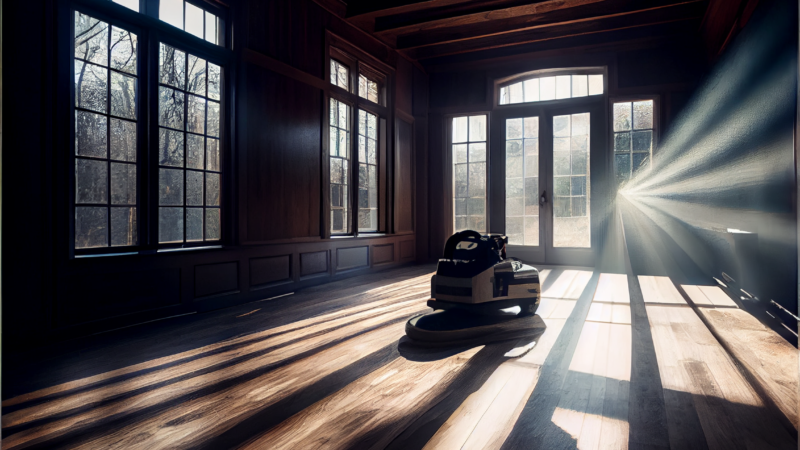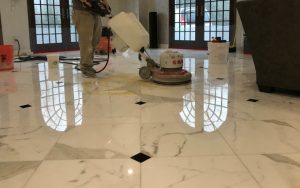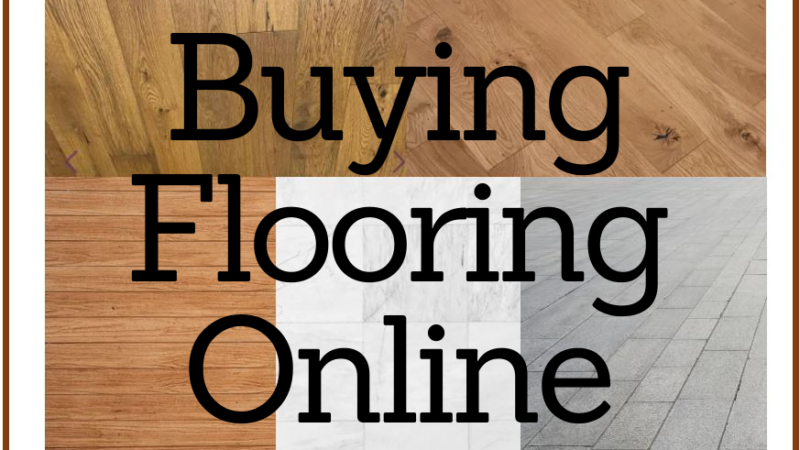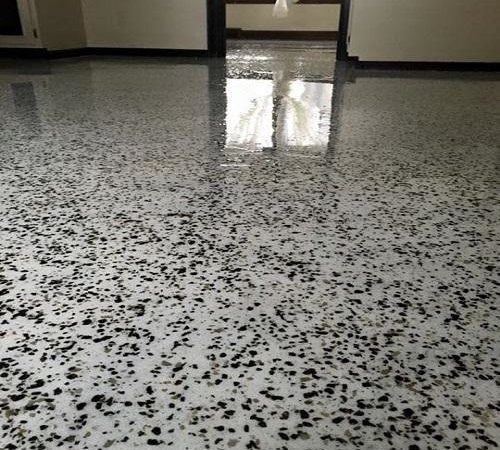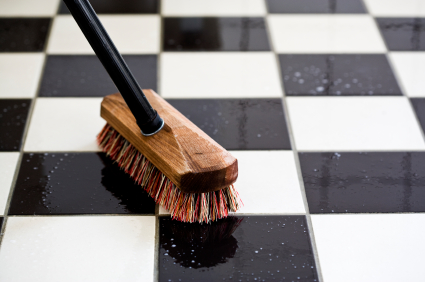Hardwood Floor Cleaning – What Every Homeowner Should Know
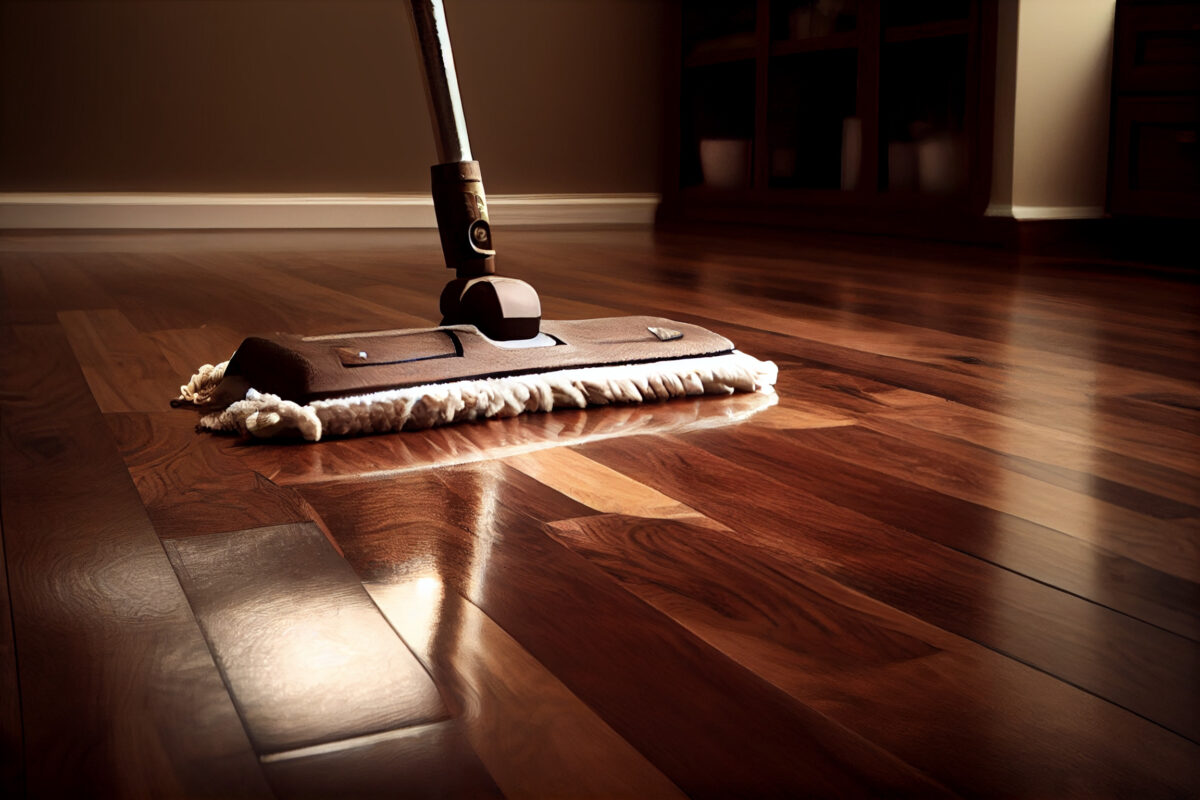
Choosing the Right Cleaning Product for Your Hardwood Floors
When it comes to cleaning your hardwood floors, choosing the right cleaning product is essential to maintain their beauty and longevity. While there are several cleaning products available in the market, we recommend using only pH-neutral cleaners like Zep pH Neutral Cleaner or Squeaky Clean by Basic Coatings. These cleaners are specially formulated to clean hardwood floors without leaving any residue, streaks or damage. Moreover, they are gentle enough to use on a regular basis without causing any harm to your floors.
Avoid using any harsh cleaners, oil soaps, or all-purpose cleaners as they can cause permanent damage to your hardwood floors. Additionally, avoid using vinegar or ammonia-based cleaners, as they are acidic and can strip away the protective finish on your hardwood floors. Using the wrong cleaner can lead to dull, faded floors or even cause warping, so be sure to use only pH-neutral cleaners to ensure your hardwood floors remain in top condition.
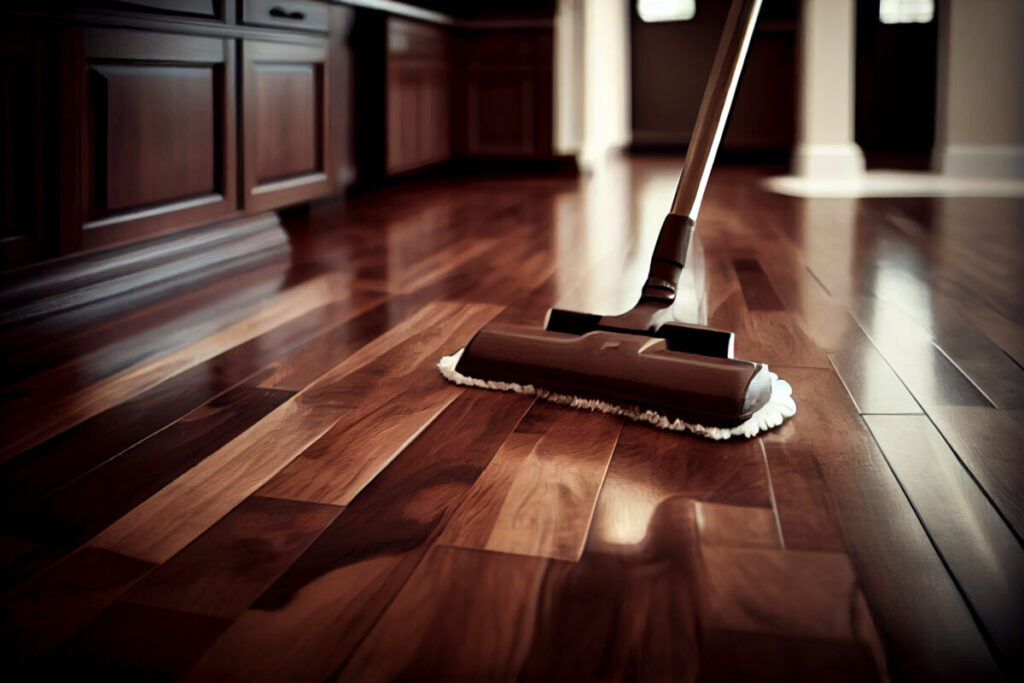
Understanding pH Balance and Its Importance for Hardwood Floor Care
The pH level of a cleaning product refers to how acidic or alkaline it is. A pH of 7 is considered neutral, while anything below 7 is considered acidic, and anything above 7 is considered alkaline. When it comes to hardwood floor care, it is important to use a pH-neutral cleaner as it will not damage the wood or its finish. Using a cleaner with a pH that is too high or too low can cause your floors to dull or even cause irreversible damage.
Another reason pH balance is important for hardwood floor care is that using the wrong cleaner can cause the finish on your floors to break down. The finish on your hardwood floors is what protects the wood from scratches and other damage, and using a cleaner that is too acidic or too alkaline can strip away this protective layer. By using a pH-neutral cleaner, you can ensure that your floors are effectively cleaned without causing any damage to the protective finish.
How to Safely Remove Stubborn Stains from Your Hardwood Floors
Despite your best efforts, sometimes stubborn stains can make their way onto your hardwood floors. The good news is that with the right approach, most stains can be removed safely without damaging your floors. To remove stains, start by identifying the type of stain and then choosing an appropriate cleaning method.
It shouldn’t matter what the stain is on hardwood floors with a proper protective layer. The protective layer won’t allow anything to penetrate. So use a pH-neutral cleaner, along with a microfiber mop head to gently clean the area immediately after the spill. Avoid using any abrasive scrubbers or harsh chemicals, as these can scratch the surface of your hardwood floors.
In some cases, a stain may actually be damaged wood, from being exposed. In such situations, it’s best to call in a professional who has experience in hardwood floor cleaning and maintenance. A professional can assess the condition and provide a solution.
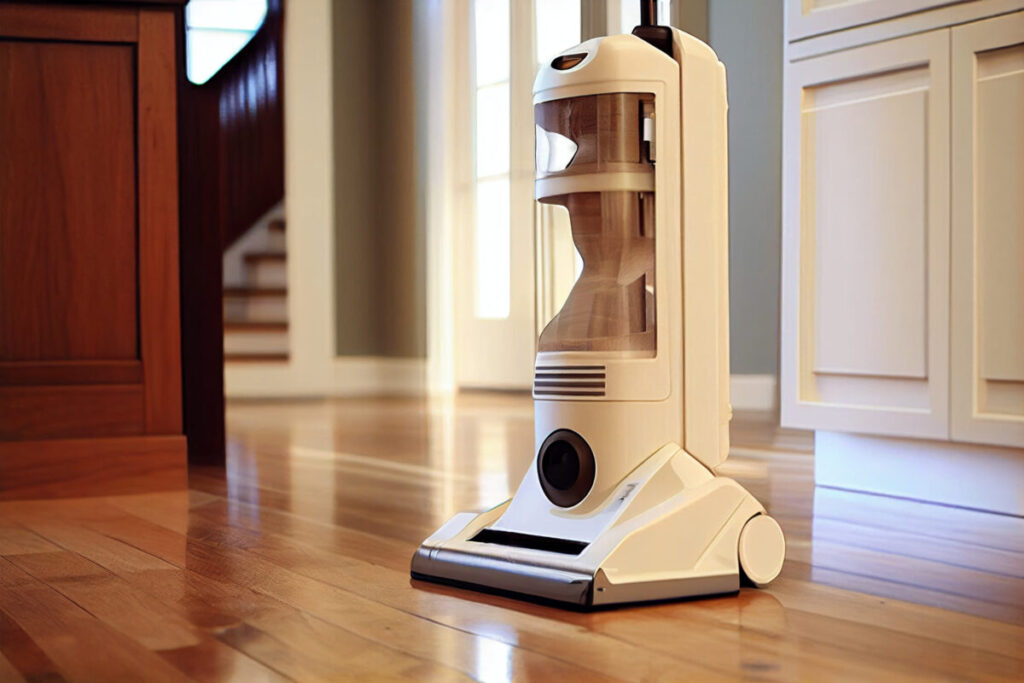
The Right Way to Mop Your Hardwood Floors for a Deep Clean
Mopping your hardwood floors is a great way to keep them clean and looking their best. However, it’s important to do it the right way to avoid causing any damage. Start by sweeping or vacuuming the floor to remove any loose dirt or debris. Next, use a pH-neutral cleaner, like Zep pH Neutral Cleaner or Squeaky Clean by Basic Coatings, and a microfiber mop head to clean the floor.
When mopping, make sure to use a damp mop, not a soaking wet mop. Too much water can damage your hardwood floors and cause warping or buckling. Additionally, avoid using a steam mop on your hardwood floors as the high heat and moisture can also cause damage.
To mop your hardwood floors, start at one end of the room and work your way towards the other end. Use a back-and-forth motion, overlapping each pass to ensure that you cover the entire area. Make sure to rinse your mop head frequently in a separate bucket of clean water to avoid re-depositing dirt and grime onto the floor. Once you’re done mopping, allow the floor to air dry or use a dry mop or towel to remove any excess moisture.
Top Dos and Don’ts for Daily Hardwood Floor Maintenance
Maintaining your hardwood floors daily can help keep them looking beautiful for years to come. Here are some dos and don’ts for daily hardwood floor maintenance:
Do:
- Sweep or vacuum the floor regularly to remove loose dirt and debris
- Use a microfiber mop head and a pH-neutral cleaner, like Zep pH Neutral Cleaner or Squeaky Clean by Basic Coatings, to clean the floors
- Use furniture pads to protect your floors from scratches and dents
- Keep your floors free from excessive moisture
Don’t:
- Use a wet mop or steam mop on your hardwood floors
- Use abrasive scrubbers or harsh chemicals to clean your floors
- Leave spills or stains on the floor for too long
- Drag heavy furniture or objects across the floor
By following these dos and don’ts, you can ensure that your hardwood floors remain in top condition for years to come.
Preventing Scratches and Scuffs: Tips for Protecting Your Hardwood Floors
Hardwood floors are beautiful and durable, but they can also be prone to scratches and scuffs. Here are some tips to help prevent scratches and scuffs and protect your floors:
Use furniture pads: Place furniture pads under the legs of your furniture to prevent scratches and scuffs when moving or rearranging furniture.
Remove shoes: Encourage your family and guests to remove their shoes before entering your home to prevent dirt and debris from scratching your floors.
Use area rugs: Place area rugs in high-traffic areas, such as entryways and hallways, to protect your floors from scratches and scuffs.
Trim your pets’ nails: Keep your pets’ nails trimmed to prevent scratches on your hardwood floors.
Avoid high heels: Discourage wearing high heels on your hardwood floors, as they can leave unsightly dents and scratches.
By following these tips, you can help protect your hardwood floors from scratches and scuffs and keep them looking beautiful for years to come.
Mistakes to Avoid When Cleaning Hardwood Floors: Common Misconceptions
There are many misconceptions about cleaning hardwood floors that can lead to damage and costly repairs. Here are some common mistakes to avoid when cleaning hardwood floors:
Using vinegar or ammonia-based cleaners: These types of cleaners are acidic and can strip away the protective finish on your hardwood floors.
- Using oil soaps or all-purpose cleaners: These cleaners can leave behind a residue that can build up over time and make your floors appear dull.
- Using a steam mop: The high heat and moisture from a steam mop can cause damage to your hardwood floors.
- Using abrasive scrubbers or pads: These can scratch the surface of your hardwood floors and cause damage to the finish.
By avoiding these common mistakes and using a pH-neutral cleaner, like Zep pH Neutral Cleaner or Squeaky Clean, you can effectively clean your hardwood floors without causing any damage.
How to Extend the Lifespan of Your Hardwood Floors with Proper Cleaning and Care
Proper cleaning and care can extend the lifespan of your hardwood floors and keep them looking beautiful for years to come. Here are some tips to help you take care of your hardwood floors:
- Regularly sweep or vacuum your floors to remove dirt and debris that can scratch the surface.
- Use a pH-neutral cleaner, like Zep pH Neutral Cleaner or Squeaky Clean by Basic Coatings, and a microfiber mop head to clean your floors regularly.
- Wipe up spills and stains immediately to prevent damage to the finish.
- Use area rugs and furniture pads to protect your floors from scratches and scuffs.
- Keep your floors free from excessive moisture to prevent warping or buckling.
- Make everyone take off their shoes when entering the home.
In addition to regular cleaning and maintenance, it’s important to periodically have your hardwood floors professionally cleaned and refinished. A professional hardwood floor cleaning and refinishing can help restore your floors to their original beauty and extend their lifespan.
